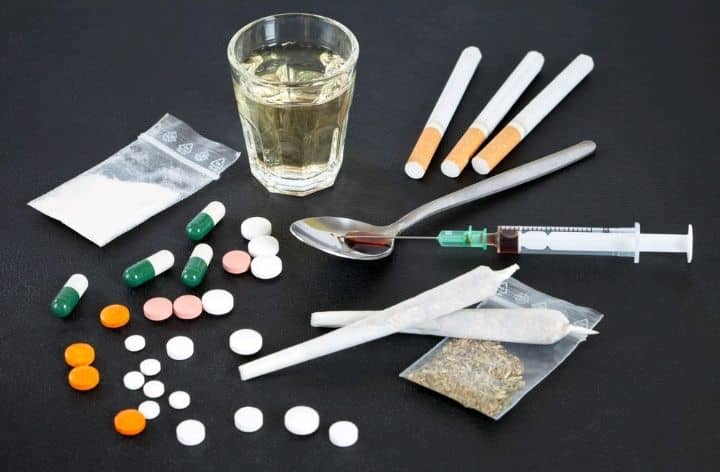The growing menace of drug abuse among Nigerian youths has become a major public health concern, with health professionals warning that the situation, if not urgently addressed, could have devastating consequences on the country’s future.
Speaking in separate interviews with our reporters, experts described drug abuse as a “silent epidemic” gradually destroying the lives of many young Nigerians, leaving families in pain and communities unsafe.
Dr. (Mrs.) Chinyere Okafor, a public health consultant at the University of Port Harcourt Teaching Hospital, said that drug abuse has become one of the leading causes of mental health problems and social vices among youths.
“We are seeing a troubling increase in the number of young people abusing substances like codeine syrup, tramadol, marijuana, and crystal meth — popularly known as mkpurummiri,” she said. “These drugs alter the brain’s normal function, causing addiction, hallucination, violent behavior, and in severe cases, permanent mental damage.”
Dr. Okafor noted that several teenagers who start with what they consider ‘harmless’ substances such as cigarette smoke or alcohol often move on to stronger drugs.
“Most of them begin out of curiosity, peer influence, or frustration due to unemployment,” she explained. “Before they realize it, they are already dependent on drugs and can’t function without them. Sadly, many parents only discover when it’s too late.”
She emphasized that one major way forward is education and early intervention.
“We need to start drug education as early as primary school. Children should be taught the dangers of substance abuse in clear, age-appropriate ways,” she advised. “The government should also fund more rehabilitation centers and ensure that health workers are trained to handle cases of drug dependence.”
According to Dr. Okafor, another key challenge is the easy accessibility of hard drugs in local markets.
“It is shocking how easily people can buy these substances from unlicensed chemists or on the street. There should be strict regulation and enforcement against drug peddlers,” she added.
Also speaking, Mr. Daniel Adebayo, a clinical psychologist and addiction counselor, lamented that drug abuse is not only a health issue but a social and economic problem.
“We are losing some of our brightest young minds to drug addiction,” Mr. Adebayo said. “It leads to school dropouts, broken families, crime, and even suicide. When the youth are wasted, the future of the nation is at risk.”
He pointed out that the effects of drug abuse are already visible in society through rising insecurity and violent crimes.
“Many cases of robbery, cult clashes, and domestic violence are linked to substance abuse,” he explained. “Drug-dependent individuals are more likely to commit crimes or harm others during withdrawal or intoxication.”
Mr. Adebayo called on the government to strengthen its partnership with the National Drug Law Enforcement Agency (NDLEA) to intensify public awareness campaigns and enforce existing laws.
“The government must move beyond arresting users. We need sustainable programs — such as community counseling centers, job creation, and skill acquisition — that give young people hope and purpose,” he said.
He also appealed to parents, religious institutions, and schools to play their parts.
“Parents must build close relationships with their children and pay attention to sudden changes in behavior,” he advised. “Churches, mosques, and schools should organize regular sensitization programs on the dangers of drug abuse.”
Both experts agreed that if urgent steps are not taken, Nigeria could face a generation overwhelmed by addiction.
“Drug abuse is not just a moral issue; it’s a national crisis that needs collective action,” Dr. Okafor concluded. “Everyone has a role to play — the government, health workers, schools, families, and the media.”
The professionals called for a multi-sectoral approach that combines strict law enforcement with compassion and rehabilitation, stressing that punishment alone cannot solve the problem.
“We must focus on prevention, treatment, and reintegration of victims,” Mr. Adebayo added. “When we help one person recover from addiction, we help a whole family and save a community.”
As Nigeria continues to battle this growing epidemic, experts insist that with the right policies, community support, and awareness, the tide of drug abuse can still be turned, one life at a time.
By Nzeuzor Jane and Maduadugwo Jane, Port Harcourt.

























